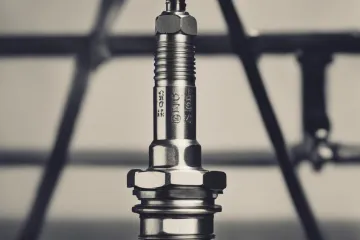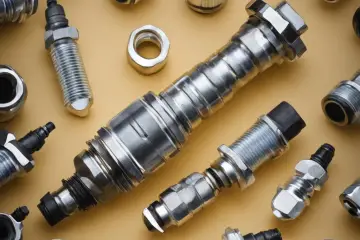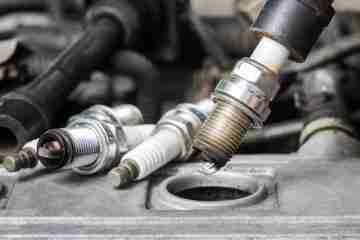Are Lexus Expensive To Maintain? Tips New 2023

Lexus, the luxury vehicle division of Toyota, is known for its reliability, comfort, and cutting-edge technology. However, when it comes to maintenance costs, potential owners may wonder if these luxury vehicles are expensive to maintain.
This article will discuss ” Are Lexus expensive to maintain?“, factors that affect them, and strategies to minimize these expenses while keeping your Lexus running smoothly and efficiently.
Is Lexus an Expensive Brand?
Lexus is the luxury vehicle division of the Japanese automaker Toyota. The brand is known for producing high-quality, well-crafted vehicles with a focus on comfort, reliability, and advanced technology.
In comparison to mainstream automotive brands, Lexus is generally considered an expensive brand due to its luxury status and the premium features that come with their vehicles.
However, when comparing Lexus to other luxury automotive brands like BMW, Mercedes-Benz, or Audi, the pricing can be relatively competitive. The cost of a Lexus vehicle varies depending on the model, features, and market conditions. Some Lexus models may be more affordable than their competitors, while others may be more expensive.
It’s essential to keep in mind that the initial cost of a vehicle is not the only factor to consider when evaluating its “expensiveness.” Ownership costs, including maintenance, repairs, insurance, and depreciation, should also be taken into account.
Lexus vehicles are known for their reliability and quality, which can contribute to lower long-term ownership costs compared to some other luxury brands.
Are lexus expensive to maintain?
Compared to other luxury brands, Lexus vehicles are generally considered less expensive to maintain. Lexus has built a reputation for producing reliable and durable vehicles, which often translates to lower maintenance and repair costs over the long term.
As a luxury division of Toyota, Lexus vehicles often share parts and technology with their Toyota counterparts. This can make it easier and more cost-effective to find replacement parts when needed. Additionally, Toyota’s reputation for reliability and quality often extends to Lexus vehicles, contributing to lower maintenance costs.
However, it’s important to note that Lexus is still a luxury brand, and maintenance costs may be higher than those for non-luxury or mainstream brands. Factors such as the specific model, age, usage, and driving habits can also affect maintenance expenses.
Regular preventative maintenance, as recommended in the owner’s manual, can help keep long-term costs down by preventing more significant issues from arising.

Cost to Maintain a Lexus?
The cost to maintain a Lexus can vary greatly depending on the model, age, location, driving habits, and other factors. It is difficult to provide a specific dollar amount for maintaining a Lexus, as it can vary from one vehicle to another. However, it is possible to give a general estimate.
On average, Lexus owners can expect to spend between $300 to $700 per year on routine maintenance, such as oil changes, tire rotations, brake services, and other scheduled services recommended in the owner’s manual. This estimate does not include repairs, which can vary greatly in cost depending on the nature and severity of the issue.
Keep in mind that this is a rough estimate, and individual experiences may vary. Some years may have lower maintenance costs, while others might be higher due to unexpected repairs or more significant service requirements.
As with any vehicle, following the recommended maintenance schedule and addressing any issues promptly can help keep long-term maintenance costs under control.
How much maintenance does my Lexus need?
The maintenance required for your Lexus will depend on factors such as the specific model, age, and mileage of the vehicle, as well as your driving habits and conditions.
To ensure your Lexus operates at its best and to prevent issues from developing, it’s important to follow the recommended maintenance schedule outlined in your vehicle’s owner’s manual.
While maintenance needs may vary, there are some general guidelines for common maintenance tasks:
- Oil and filter change: Typically, Lexus recommends an oil change every 5,000 to 10,000 miles or every 6 to 12 months, depending on the model, oil type, and driving conditions. Check your owner’s manual for the specific interval for your vehicle.
- Tire rotation: To ensure even tire wear, it’s recommended to rotate your tires every 5,000 to 7,500 miles or as specified in your owner’s manual.
- Brake service: Brake pads and rotors should be inspected regularly and replaced as needed. The frequency of brake service will depend on your driving habits and conditions.
- Fluid checks and replacements: Regularly check and replace fluids such as engine coolant, transmission fluid, brake fluid, and power steering fluid as recommended in your owner’s manual.
- Air filter replacement: The engine air filter should be replaced every 15,000 to 30,000 miles or as indicated in your owner’s manual. The cabin air filter should also be replaced periodically, usually every 15,000 to 25,000 miles, depending on driving conditions.
- Spark plugs and ignition components: These should be inspected and replaced according to the intervals specified in your owner’s manual, typically every 60,000 to 100,000 miles.
- Belts and hoses: Inspect belts and hoses for wear and replace them as necessary. Timing belts usually need replacement between 60,000 and 100,000 miles, but some newer Lexus models have a timing chain, which generally does not require replacement.
These are general guidelines, and the specific maintenance requirements for your Lexus may differ. It’s essential to consult your owner’s manual and follow the recommended maintenance schedule to ensure the best performance and longevity for your vehicle.
If you are unsure about any aspect of your Lexus maintenance, it’s always best to consult with a qualified Lexus service technician.

How much does service for a Lexus cost?
The cost of servicing a Lexus can vary depending on the model, type of service, location, and individual dealership or service center. Here is a general breakdown of some common Lexus services and their estimated costs:
- Oil and filter change: Depending on the type of oil (conventional, synthetic, or synthetic blend) and the specific model, an oil and filter change for a Lexus can range from $50 to $150.
- Tire rotation: A tire rotation for a Lexus typically costs between $30 and $60, depending on the service provider.
- Brake service: Replacing brake pads on a Lexus can cost between $150 and $400 per axle, depending on the model and whether you choose aftermarket or original equipment manufacturer (OEM) parts. Replacing brake rotors can range from $300 to $800 per axle.
- Fluid checks and replacements: The cost of fluid replacement can vary depending on the type of fluid and the specific service. For example, a transmission fluid flush may range from $150 to $300, while a coolant flush can cost between $100 and $200.
- Air filter replacement: Replacing the engine air filter on a Lexus generally costs between $30 and $70, while a cabin air filter replacement ranges from $60 to $120.
- Spark plugs and ignition components: Replacing spark plugs on a Lexus can cost between $200 and $400, depending on the model and labor rates.
- Belts and hoses: Replacing a serpentine belt on a Lexus can range from $100 to $200, while a timing belt replacement can cost between $600 and $1,200.
Keep in mind that these are approximate costs, and actual costs can vary based on your location, the service center, and the specific needs of your vehicle. It is always a good idea to get quotes from several service providers to find the best price for your Lexus maintenance.
Additionally, you can save on service costs by taking advantage of service specials and discounts often offered by Lexus dealerships and service centers.
How often does a Lexus need maintenance?
Oil changes
The frequency at which a Lexus needs maintenance, specifically oil changes, depends on factors such as the specific model, driving conditions, and the type of oil used. It’s important to follow the maintenance schedule outlined in your vehicle’s owner’s manual to ensure optimal performance and longevity.
As a general guideline, Lexus recommends an oil change every 5,000 to 10,000 miles or every 6 to 12 months, depending on the model and oil type. For example:
- Conventional oil: If your Lexus uses conventional oil, you may need to change the oil every 5,000 miles or every 6 months, whichever comes first.
- Synthetic oil: If your Lexus uses synthetic oil, you might be able to extend the oil change interval to every 10,000 miles or 12 months, whichever comes first.
It’s crucial to check your owner’s manual for the specific oil change interval recommended for your Lexus model. Factors such as frequent short trips, heavy traffic, and extreme temperatures may require more frequent oil changes.
Regularly checking the oil level and condition can also help identify any potential issues and ensure that the engine remains well-lubricated.
Tire replacement
Tire replacement for your Lexus, or any vehicle, depends on factors like tire quality, driving habits, road conditions, and proper maintenance such as tire rotations and alignment. On average, tires can last anywhere from 25,000 to 50,000 miles or even more, depending on these factors. However, it’s essential to monitor your tires for signs of wear and replace them when necessary to maintain optimal safety and performance.
Here are some tips for knowing when to replace your tires:
- Tread depth: A common method for measuring tread depth is the penny test. Insert a penny into the tire tread with Lincoln’s head upside down and facing you. If you can see the top of Lincoln’s head, the tread depth is below 2/32 of an inch, and it’s time to replace your tires.
- Tread wear indicators: Most tires have built-in tread wear indicators (small raised bars within the tire grooves). When these indicators become flush with the tire’s surface, it’s time to replace the tires.
- Age: Tires degrade over time, even if they have ample tread depth. It’s generally recommended to replace tires that are six to ten years old, regardless of their remaining tread.
- Damage: If your tires have sidewall damage, bulges, punctures, or other damage that cannot be safely repaired, it’s time for a replacement.
- Uneven wear: If your tires show uneven wear, despite regular tire rotations, there may be an issue with alignment, suspension, or other components of the vehicle. In such cases, it’s essential to replace the worn tires and address the underlying issue to prevent further uneven wear.

Engine replacement
Engine replacement is a significant and costly repair that may become necessary if an engine suffers from severe damage or has reached the end of its useful life. However, Lexus vehicles are known for their reliability and durability, so engine replacement is relatively rare, especially with proper maintenance and care.
The cost of an engine replacement can vary greatly, depending on factors such as:
- Model and year of the vehicle
- Type of engine (gasoline, hybrid, or electric)
- New, rebuilt, or used engine
- Labor rates in your area
- Additional parts or repairs needed
As a rough estimate, replacing an engine in a Lexus vehicle can range from $3,000 to $10,000 or more, depending on the factors mentioned above. This includes the cost of the replacement engine itself and the labor involved in removing the old engine and installing the new one.
Before opting for an engine replacement, it’s essential to carefully consider the overall condition and value of the vehicle. In some cases, it may be more cost-effective to purchase a new or used vehicle rather than invest in an engine replacement.
If you suspect your Lexus may require an engine replacement, consult a qualified Lexus technician or service center to diagnose the issue and provide an accurate estimate of the repair costs. They can help you make an informed decision about the best course of action for your specific situation.
Windshield replacement
Windshield replacement is necessary if your Lexus vehicle’s windshield is severely cracked, chipped, or damaged beyond repair. The cost of a windshield replacement varies depending on several factors, including:
- Vehicle model and year
- Type of windshield glass (OEM or aftermarket)
- Features integrated into the windshield, such as rain sensors, lane departure warning systems, or heads-up display
- Labor rates in your area
- Whether the replacement is covered by insurance
As a general estimate, the cost of a windshield replacement for a Lexus vehicle can range from $300 to $1,500 or more, depending on the factors mentioned above. If you have comprehensive insurance coverage, it may cover the cost of a windshield replacement, subject to your policy’s deductible.
When choosing a windshield replacement service, it’s essential to select a reputable and experienced provider to ensure the proper installation and seal of the new windshield. This will help prevent leaks, wind noise, and other issues that may arise from an improper installation.
If your windshield is damaged, it’s important to address the issue promptly to maintain your vehicle’s structural integrity, safety, and visibility. Small chips or cracks can sometimes be repaired, but if the damage is too extensive, a complete windshield replacement will be necessary.
Always consult with a qualified auto glass technician to assess the damage and recommend the appropriate course of action.

Paint
If you need to touch up or repaint your Lexus, there are several factors to consider, such as the extent of the paintwork required, the type of paint used, and the quality of the paint job. The cost of painting a Lexus can vary greatly depending on these factors.
- Touch-up paint: If you have minor scratches or chips in your Lexus’s paint, you can use touch-up paint to repair the damage. Touch-up paint is available in small bottles or pens, and it’s essential to match the paint color code specific to your vehicle. The cost of touch-up paint can range from $10 to $50, depending on the type and amount of paint you need.
- Spot painting or panel painting: If you have more significant damage to a specific area or panel of your vehicle, you may need to have a portion of the car repainted. Spot painting or panel painting can cost between $100 to $1,000 or more, depending on the size of the area, the complexity of the paint job, and labor rates in your area.
- Complete repaint: If your Lexus’s paint is severely damaged, faded, or you want to change the color entirely, you may consider a complete repaint. The cost of a full repaint can range from $1,500 to $5,000 or more, depending on factors such as the quality of the paint, the level of preparation and labor involved, and any additional services such as paint correction or removal of dents and dings.
What Lexus Maintenance Is Covered Under Warranty?
Lexus offers a comprehensive warranty program to cover various maintenance and repair items for a specified period. Warranty coverage may vary depending on the model year and specific vehicle, but generally, the following maintenance and repair items are covered under a Lexus warranty:
- Basic Warranty (New Vehicle Limited Warranty): This warranty typically covers repairs and adjustments needed to correct defects in materials or workmanship for 48 months or 50,000 miles, whichever comes first.
- Powertrain Warranty: This warranty covers the engine, transmission, and other powertrain components for 72 months or 70,000 miles, whichever comes first.
- Hybrid System Warranty: For Lexus hybrid vehicles, the hybrid system components are covered for 96 months or 100,000 miles, whichever comes first.
- Corrosion Perforation Warranty: This warranty covers repair or replacement of any original body panels that develop perforation due to corrosion for 72 months, regardless of mileage.
- Emission Control Warranty: Lexus provides an emission control warranty in accordance with federal and, in some cases, state regulations. The duration of the warranty can vary based on the specific emission control component and the applicable regulations.
It’s important to note that the Lexus warranty typically covers defects in materials or workmanship and does not cover regular maintenance items like oil changes, tire rotations, and brake pads unless specified in a separate maintenance plan.
Wear items such as tires, wiper blades, and brake pads are also not covered, as they are subject to wear and tear from normal use.
Additionally, Lexus offers the following warranties and services, which may provide additional coverage:
- Roadside Assistance: Lexus provides roadside assistance for 48 months from the vehicle’s in-service date, regardless of mileage. This service includes assistance with flat tires, lockouts, jump starts, fuel delivery, and towing to the nearest Lexus dealer or authorized repair facility.
- Accessory Warranty: Genuine Lexus accessories are typically covered by a 12-month or 12,000-mile warranty, whichever comes first. Some accessories may have a longer warranty, depending on the specific accessory and vehicle.
- Adjustment Warranty: Lexus may also offer an adjustment warranty, which covers minor adjustments that may be needed during the first 12 months or 12,000 miles of ownership, such as headlight alignment or door adjustments.
- Seat Belt Warranty: Seat belts are generally covered for defects in material or workmanship for 72 months, regardless of mileage.
It’s essential to consult your Lexus owner’s manual, warranty booklet, or contact your local Lexus dealer for the specific warranty coverage and maintenance plan applicable to your vehicle.
Keep in mind that warranty coverage may be subject to certain terms, conditions, and exclusions. Proper maintenance and care of your Lexus, as outlined in the owner’s manual, are crucial for maintaining the validity of your warranty.

How to Reduce Lexus Maintenance Costs
Reducing maintenance costs for your Lexus involves a combination of proactive care, smart decision-making, and staying informed about your vehicle’s needs. Here are some tips to help you minimize Lexus maintenance costs:
- Follow the maintenance schedule: Adhering to the recommended maintenance schedule outlined in your vehicle’s owner’s manual can help prevent more significant and costly repairs in the long run. Regularly servicing your Lexus keeps it running smoothly and reduces the risk of unexpected issues.
- Perform basic maintenance yourself: Learning how to perform simple maintenance tasks, such as oil and filter changes, air filter replacements, and checking fluid levels, can save you money on labor costs. Ensure you have the necessary tools, knowledge, and skills before attempting any DIY maintenance.
- Use quality parts and fluids: While it may be tempting to save money with cheaper parts and fluids, using high-quality, manufacturer-recommended components can help maintain your Lexus’s performance and prevent future issues, ultimately saving you money in the long run.
- Compare service providers: Shop around and compare prices from different service providers, including independent repair shops and Lexus dealerships. Look for providers that have experience working on Lexus vehicles, and read customer reviews to ensure you’re choosing a reputable provider. Don’t forget to ask about discounts or special offers.
- Regularly inspect your vehicle: Routinely inspecting your Lexus for signs of wear or potential issues, such as tire tread depth, brake pad thickness, and fluid leaks, can help you address problems early on and avoid more costly repairs.
- Maintain your tires: Proper tire maintenance, including maintaining correct tire pressure, rotating tires regularly, and checking for uneven wear, can extend the life of your tires and improve your vehicle’s overall performance. Replacing worn tires when necessary is crucial for safety and fuel efficiency.
- Drive responsibly: Adopting good driving habits, such as accelerating smoothly, braking gently, and avoiding aggressive driving, can help reduce wear and tear on your Lexus and minimize maintenance costs over time.
- Address issues promptly: If you notice any unusual sounds, smells, or warning lights, address the issue as soon as possible. Ignoring a problem can lead to more extensive and expensive repairs in the future.
- Keep records: Maintain detailed records of all maintenance and repairs performed on your Lexus. This can help you track when services are due and provide valuable information for resale or trade-in purposes.
- Consider a prepaid maintenance plan: Some Lexus dealerships offer prepaid maintenance plans, which allow you to pay for routine maintenance upfront, often at a discounted rate. These plans can help you save on maintenance costs and ensure that your vehicle is serviced at recommended intervals.
By following these tips and prioritizing regular maintenance, you can help extend the life of your Lexus, maintain its performance, and minimize overall maintenance costs. Remember, investing in the proper care and maintenance of your Lexus will pay off in the long run, with a more reliable and enjoyable driving experience.
Recommendations for Extended Auto Warranties
When considering an extended auto warranty, it’s essential to choose a reputable and reliable provider that offers comprehensive coverage and excellent customer service. Here are some recommendations for extended auto warranty providers:
- Endurance: Endurance is one of the top-rated extended auto warranty companies, offering a variety of coverage options, including exclusionary and stated component plans. They provide direct-to-consumer services, which means you’ll be dealing with the same company for both purchasing and administering the warranty. Endurance also offers additional benefits like roadside assistance, rental car coverage, and trip interruption coverage.
- CARCHEX: CARCHEX is known for its extensive range of warranty plans and excellent customer service. They offer five levels of coverage, with various term lengths and deductibles to meet different needs and budgets. CARCHEX also partners with industry leaders, such as Kelley Blue Book and CARFAX, adding credibility to their offerings.
- CarShield: CarShield is a popular choice for extended auto warranties, with flexible coverage options and monthly payment plans. They offer a variety of warranty plans, including specialty coverage for high-tech components and motorcycles. CarShield also provides 24/7 roadside assistance and rental car reimbursement.
- autopom!: autopom! stands out for its comprehensive coverage options and excellent customer service. They offer four levels of coverage, including exclusionary and stated component plans, with various term lengths and deductibles. autopom! also provides additional benefits like roadside assistance, rental car reimbursement, and trip interruption coverage.
- Protect My Car: Protect My Car offers three levels of coverage, ranging from basic powertrain protection to comprehensive bumper-to-bumper coverage. They provide flexible payment plans and a 30-day money-back guarantee, which allows customers to test the service and ensure it meets their needs. Additional benefits include 24/7 roadside assistance, rental car reimbursement, and trip interruption coverage.
- Toco Warranty: Toco Warranty offers simple and straightforward extended warranty plans with no down payment required. They provide four levels of coverage with various term lengths and deductibles, catering to a wide range of budgets and vehicle needs. Toco Warranty also includes 24/7 roadside assistance, rental car reimbursement, and trip interruption coverage.
Conclusion
In conclusion, owning a Lexus involves maintenance and repair costs, but with proper care and attention, you can minimize these expenses. Following the recommended maintenance schedule, using quality parts and fluids, and adopting good driving habits can help extend your vehicle’s life and maintain its performance.
When considering an extended auto warranty, choose a reputable provider that offers comprehensive coverage, excellent customer service, and additional benefits. By investing time and effort into the care and maintenance of your Lexus, you can enjoy a reliable and enjoyable driving experience while reducing overall costs.
Read also:














No Comment